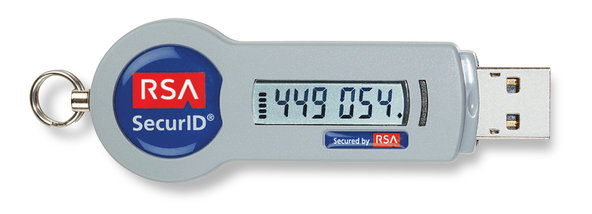Major corporations, government agencies, and small businesses all hand out RSA SecurID fob keychains to employees so that they can log in to their systems for security reasons and If you’re used to seeing a device like this on a daily basis, you probably assume that it’s a vital security measure to keep your employer’s networks and data secure. A team of computer scientists beg to differ, however, because they’ve cracked the encryption it uses wide open.
In a paper called “Efficient padding oracle attacks on cryptographic hardware,” researchers Romain Bardou, Lorenzo Simionato, Graham Steel, Joe-Kai Tsay, Riccardo Focardi and Yusuke Kawamoto detail the vulnerabilities that expose the imported keys from various cryptographic devices that rely on the PKCS#11 standard.
They managed to develop an approach that requires just 13 minutes to crack the device’s encryption. RSA Security, a division of the data storage company EMC, is one of the largest makers of the security fobs. A spokesman for the company, Kevin Kempskie, said that its own computer scientists were studying the paper to determine “if this research is valid.”
Commonly referred to as the ‘million message attack,’ it usually requires an average of 215,000 queries to reveal a 1024-bit key. The refined method suggested in the document improves the algorithm and only requires an average of 9,400 calls to reveal the same key. They accomplished this by using a theorem that allows not only multiplication but also division to be used in manipulating a PKCS# v1.5 ciphertext to learn about the plaintext. The paper says that "the attacks are efficient enough to be practical."
Among the other vulnerable devices are SafeNet's iKey 2032 and Aladdin eTokenPro, Siemens' CardOS and Gemalto's CyberFlex (92 minutes). Also vulnerable is the Estonian electronic ID Card, which contains two RSA key pairs
Found this article interesting? Follow us on Google News, Twitter and LinkedIn to read more exclusive content we post.




























